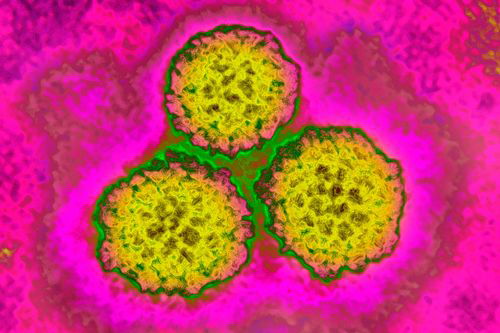What is HPV? What you should know about vaccines, symptoms and cancer risks

Sexually transmitted infections can be a nuisance at best and deadly at worst.
Human papillomavirus, also known as HPV, is the most commonplace, according to the US Centers for Disease Control and Prevention. There were about 43 million infections in 2018, most of which were from older teenagers and young adults, according to the CDC.
People with HPV are at risk for developing genital warts and some cancers, said Debbie Saslow, the American Cancer Society’s managing director of HPV and gynecologic cancers.
Saslow has spent nearly 25 years studying HPV and works to raise awareness for the HPV vaccine.
This conversation has been edited and condensed for clarity.
CNN: What does HPV cause?
Debbie Saslow: Almost everybody will get HPV at some point, and most people will not get any symptoms. Some types of HPV can cause skin warts, some can cause genital warts and some cause cancer.
The types of HPV that cause cancer are transmitted through intimate skin-to-skin contact, so it’s mostly through sexual activities. The most common HPV cancer in women is cervical cancer. While some women may not be familiar with their cervix, many go to a gynecologist to get screened for cervical cancer with a Pap test or HPV test. The most common HPV cancer in men is throat cancer, although women can get it, too. It’s in the oropharynx, which is the back of the throat and tonsils. The other four cancers are anal cancer in men and women, penile cancer in men, and vulva and vaginal cancers in women.
Not that many people get to the point where they’re symptomatic because screenings are pretty common in the United States, but pain after sex and abnormal bleeding are two symptoms of cervical cancer.
CNN: How can people lower their chances of getting HPV?
Saslow: Getting vaccinated can prevent more than 90% of HPV cancers and over 90% of genital warts. It’s recommended for boys and girls ages 9 to 12, but people up to age 26 can still get the vaccine.
Secondary prevention for women ages 25 to 65 with a cervix is a cervical cancer screening. By finding and treating or removing precancers, you can actually prevent cancer.
The preferred screening method is an HPV test every five years. Unlike a Pap test, HPV testing predicts the future. For example, if someone is HPV positive two years in a row even if the cervical cells are normal, it’s a sign that the infection could progress to precancer.
If someone has a negative HPV test, their chances of having cervical cancer in the next five or 10 years is close to zero.
There aren’t recommended HPV screenings for men because there isn’t an HPV test for them. The one exception is for anal cancer. It’s not a national recommendation, but anal screening may be used for men who have sex with men. Condoms may slightly reduce the risk of HPV transmission. It’s a good idea to use them anyway to reduce the risk of other viruses.
CNN: If someone is having sex with multiple partners, should that person get tested more frequently?
Saslow: People who are sexually active with more than one partner at a time are at a higher risk of getting HPV, but they are not at a higher risk if they do get HPV, of getting precancer or cancer any faster than somebody who got HPV from a mutually monogamous partner.
The risk is higher but it doesn’t change the screening interval. The timing from HPV infection to precancer is a decade, so that’s why five years in between screenings is really safe. The time from HPV infection exposure to cancer is closer to 20 years, so we have a lot of time to find it.
CNN: What do you say to parents worried their children will become sexually active earlier if they get the vaccine?
Saslow: There are many studies that show it’s not true at all. There have been studies where researchers asked, was there any difference in the number of sexually transmitted diseases, age when people started having sex or unintended pregnancies, and the answer across the board is no.
For parents who think it’s true, do you tell your children when you’re teaching them how to drive to not put on a seat belt because it’s going to cause them to speed? You don’t do that, and it’s the same exact logic with the HPV vaccine.
We recently changed the wording of the guideline to strengthen the recommendation for vaccinating at age 9. Before it said to vaccinate at age 11 or 12, or you can start at age 9. Now we just say 9 to 12. Studies have shown when we offer the vaccine to a 9- or 10-year-old, parents aren’t thinking about their sexuality. When the children are 11 or 12, that’s where the parents’ minds may tend to go.
CNN: Should college students get the HPV vaccine?
Saslow: Remember that if the vaccine isn’t given by age 12, it’s still recommended through age 26. Adults through age 45 can ask their provider about it, but the effectiveness goes down drastically around the college years, about age 18.
College is a good time to get people who were missed or people whose parents chose not to give their child the vaccine because then the person can make a choice for themselves.
By the time you get out of college, this vaccine effectiveness is low. Mostly that’s because people are exposed to HPV already and the vaccine only works before you’re exposed.